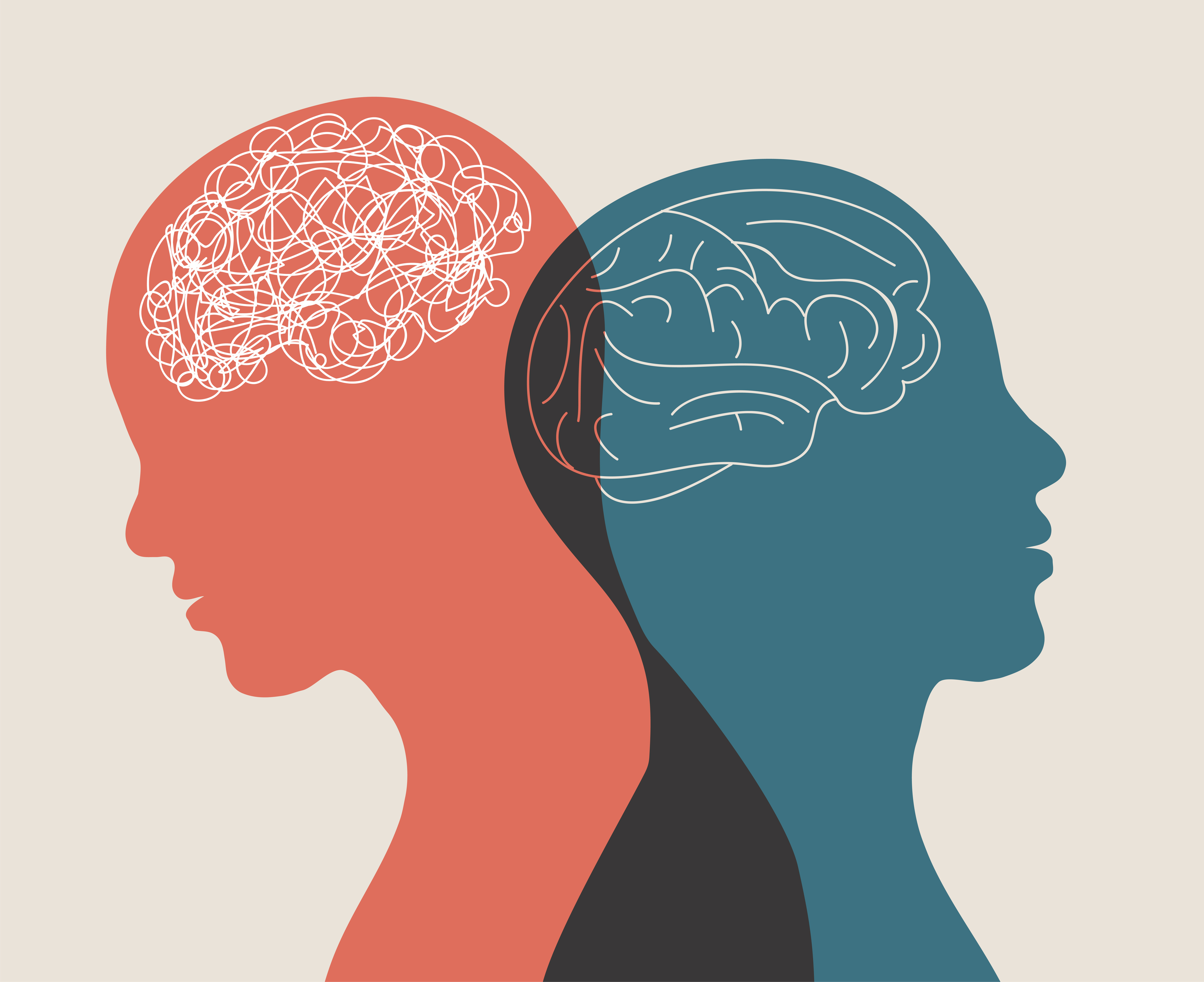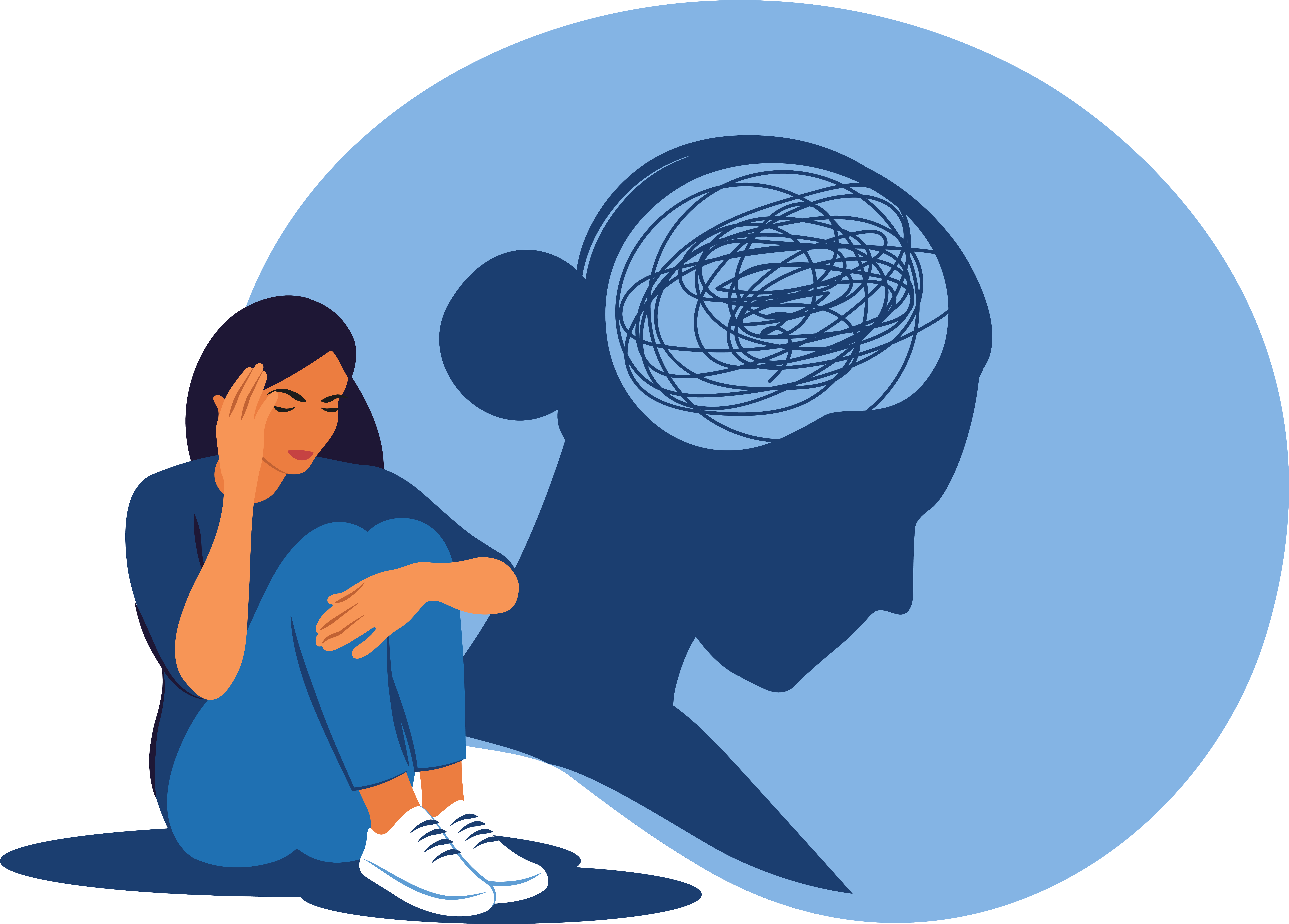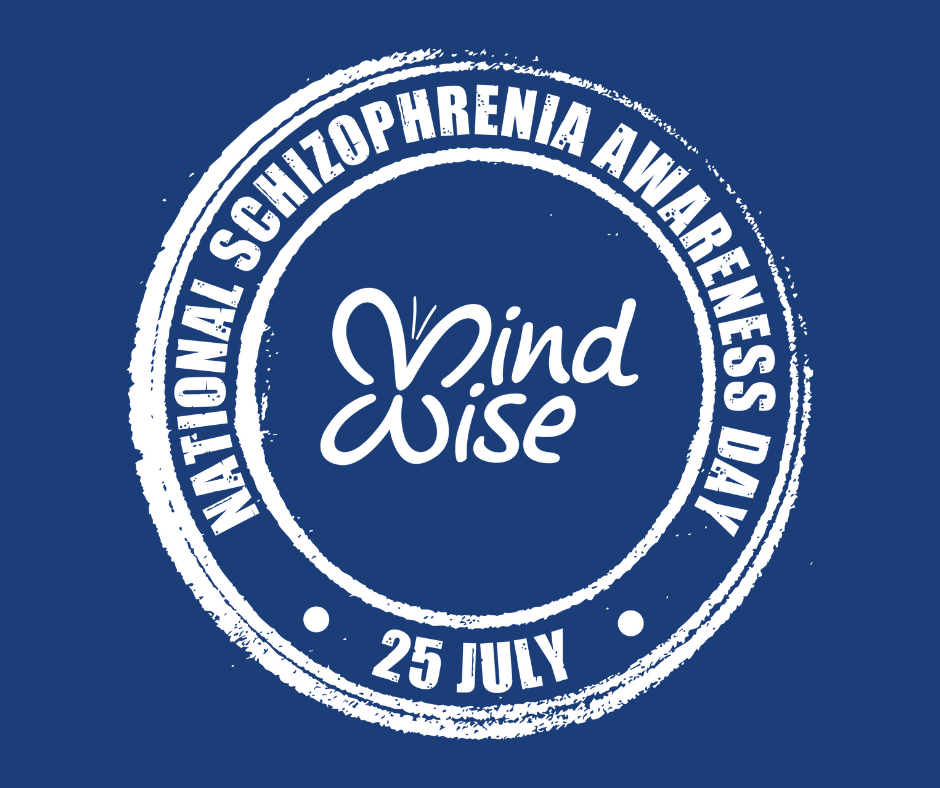- Home
- Mental Health Conditions
- Current: Schizophrenia
Do you need urgent help?
If you need to speak to someone right now, here are some confidential options which provide 24/7 support. If you're worried you might hurt yourself or someone else, please call 999, or go to your nearest A and E.
Childline
Helps anyone under 19 in the UK with any issue they’re going through. Childline is free, confidential and available any time, day or night.
0800 1111Samaritans
24 hours a day, 365 days a year. You don't have to be suicidal to call us
Schizophrenia
This section covers what schizophrenia is, what the symptoms are and how you can get treatment. It's for you if you have experienced schizophrenia yourself, or if you care for someone who does.
Quick Facts
*You can get medication and psychological treatments for schizophrenia.
- Schizophrenia is a mental illness that affects the way you think.
- It affects about 1 in every 100 people.
- Schizophrenia may develop during early adulthood.
- You can have ‘positive’ and ‘negative’ symptoms of schizophrenia.
- Positive symptoms are experiencing things that are not real (hallucinations) and having unusual beliefs (delusions)
- Negative symptoms may be a lack of motivation and being withdrawn. They often last longer than positive symptoms.
- There are different types of schizophrenia.
- There are different causes of schizophrenia including genetics and environment.

What is schizophrenia?
Schizophrenia is a mental illness which affects the way you think. The symptoms may affect how you cope with day to day life. You could be diagnosed with schizophrenia if you experience some of the following symptoms.
- hallucinations
- delusions
- disorganised thinking
- lack of motivation
- slow movement
- change in sleep patterns
- poor grooming or hygiene
- changes in body language and emotions
- less interest in social activities
- low sex drive.

Everyone is different. Not everyone with schizophrenia will get all of these symptoms.
Schizophrenia is a common illness. About one in a hundred people will develop schizophrenia. It can develop during young adulthood. The early stage of the illness is called ‘the prodromal phase’. During this phase your sleep, emotions, motivation, communication and ability to think clearly may change.
If you become unwell this is called an ‘acute episode’. You may feel panic, anger or depression during an acute episode. Your first acute episode can be a shocking experience because you are not expecting it or prepared for it.
Myths about schizophrenia
There are some myths or mistaken beliefs about schizophrenia which come from the media.
- ‘Schizophrenia means someone has a split personality’
A common myth is that schizophrenia means that people have multiple or split personalities. This is not the case. The mistake may come from the fact that the name 'schizophrenia' comes from two Greek words meaning 'split' and 'mind'.
- ‘Schizophrenia causes people to be violent’
Research shows that only a small number of people with the illness may become violent, much in the same way as a small minority of the general public may become violent. People with a diagnosis of schizophrenia are more likely to be a danger to themselves than to other people. But as these incidents can be shocking, the media often report them in a way which emphasises the mental health aspects. This can create fear and stigma in the general public.

Types & Symptoms
There are no blood tests or scans that can prove if you have schizophrenia. Only a psychiatrist can diagnose you after a full psychiatric assessment. Psychiatrists use manuals to diagnose mental illnesses. The main manuals used by doctors are the:
- International Classification of Diseases (ICD-10) which is produced by the World Health Organisation (WHO)
- Diagnostic and Statistical Manual (DSM-5) which is produced by the American Psychiatric Association.
Doctors in the UK use the ICD-10.
The manuals explain which symptoms should be present, and for how long.Your symptoms need to last for a least one month before your doctor can diagnose you. They may say you have a psychotic disorder or psychosis before they diagnose you with schizophrenia.
Sometimes the symptoms of schizophrenia are described as positive symptoms or negative symptoms. This does not mean that they are good or bad.
‘Positive’ symptoms are experienced in addition to reality. ‘Negative’ symptoms can effect your ability to function.
Positive symptoms
The terms ‘positive symptoms’ and ‘psychosis’ are generally used to describe the same symptoms. The following are positive symptoms.
- Hallucinations
- Delusions
- Disorganised thinking
Hallucinations
Hallucinations are experiences that feel real but aren’t actually happening. They can affect any of your five senses - sound, sight, touch, taste, or smell. The most common type is hearing voices or other sounds. This experience is different for everyone. Some people hear voices occasionally, while others may hear them frequently or all the time. These voices can vary in tone, volume, language, and familiarity. You might experience:
- Voices that are male or female
- Someone you know or a stranger
- A different language or accent
- Whispering, talking, or shouting
- Negative, neutral, or disturbing messages

Delusions
Delusions are fixed beliefs which do not match up to the way other people see the world. You may not be able to find evidence for or against your belief, and you may look for ways to prove the way you see things. Delusions may include believing different things such as the following:
- you are being chased, plotted against or poisoned,
- someone you know, the government or aliens are responsible,
- you are a famous or important person,
- people on television are sending messages to you, or
- your thoughts are being broadcast aloud.
- You may feel overwhelmed and act differently due to your beliefs.

Disorganised thinking
Another symptom is ‘disorganised thinking’. This means you might start talking quickly or slowly. The things you say might not make sense to other people. You may switch topics without any obvious link. This is sometimes known as ‘word salad’. A diagnosis of schizophrenia does not mean that you will have all these symptoms. The way that your illness affects you will depend on the type of schizophrenia that you have. For example, not everyone with this diagnosis will have hallucinations or confused thinking. Negative symptoms - These are symptoms that involve loss of ability and enjoyment in life. They can include the following things:
- Lack of motivation
- Slow movement
- Change in sleep patterns
- Poor grooming or hygiene
- Difficulty in planning and setting goals
- Not saying much
- Changes in body language
- Lack of eye contact
- Reduced range of emotions
- Less interest in socialising or hobbies and activities
- Low sex drive

Cognitive Experiences
Another negative symptom is cognitive impairment. This means that your mind is affected in a negative way. Cognitive experiences are ones that relate to mental action; such as learning, remembering and functioning. Some cognitive experiences are associated with schizophrenia are: Negative symptoms are much less dramatic than positive symptoms. They may last longer, and stay after positive symptoms fade away. Many people with schizophrenia feel that the negative symptoms of their illness are more serious and impact on their life more than the positive symptoms. Negative symptoms can vary in severity.
- being unable to sustain attention,
- memory problems,
- Unable to take on information, and
- Poor decision making

What are the different types of schizophrenia?
There are different kinds of schizophrenia. The International Classification of Diseases (ICD-10) manual describes them as below.
Paranoid schizophrenia
- Common form of schizophrenia.
- Prominent hallucinations and/or delusions.
- May develop at a later age than other types of schizophrenia.
- Speech and emotions may be unaffected.
Hebephrenic schizophrenia
- Disorganised behaviour without purpose.
- Disorganised thoughts: other people may find it difficult to understand you.
- Pranks, giggling, health complaints and grimacing.
- Short-lasting delusions and hallucinations.
- Usually develops between 15 and 25 years old.
Catatonic schizophrenia
- Rarer than other types.
- Unusual movements, often switching between being very active and very still.
- You may not talk at all.
Undifferentiated schizophrenia
Your diagnosis may have some signs of paranoid, hebephrenic or catatonic schizophrenia, but doesn’t obviously fit into one of these types alone.
Residual schizophrenia
You may be diagnosed with this if you have a history of psychosis but only have negative symptoms.
Simple schizophrenia
- Rarely diagnosed in the UK.
- Negative symptoms are prominent early and get worse quickly.
- Positive symptoms are rare.
Unspecified schizophrenia
Symptoms meet the general conditions for a diagnosis, but do not fit in to any of the above categories.
If you’ve just been diagnosed with schizophrenia, you might have a lot of complicated feelings. You can read more on how to cope with them here.
Causes
Nobody knows exactly what causes schizophrenia, it is likely to be the result of several factors. For example: brain chemistry, genetics, birth complications can cause schizophrenia. Some people can develop the illness as a result of a stressful event, such as the death of a loved one or the loss of a job. Experiences like growing up in a town or city, stressful life events and moving to new a new town or country can also trigger symptoms of psychosis and schizophrenia. There is a strong link between the use of strong cannabis and the development of schizophrenia.
Treatment
There isn’t a cure for schizophrenia. This may be because the causes of the illness are not fully understood. You may find that you need to continue treatment to keep well. Up to 3 in 10 people with schizophrenia may have a lasting recovery, and 1 in 5 people may show significant improvement. Around half of people diagnosed with schizophrenia will continue to have it as a long-term illness. Everyone’s experience of schizophrenia is different. It may get better then worse, involve further episodes of being unwell, or may be more constant. You need to find the right treatment for you. The National Institute for Health and Care Excellence (NICE) recommends that you should be offered a combination of medication and talking therapies.

Medications
Your doctor may offer you medication known as an ‘antipsychotic’. These reduce the symptoms of schizophrenia, but do not cure the illness. Your healthcare professionals should work with you to help choose a medication. If you want, your carer can also help you make the decision. Doctors should explain the benefits and side effects of each drug. In the past, antipsychotics had negative side effects. Some people find that the side effects of newer antipsychotic drugs are easier to manage. If you have been on an antipsychotic for a few weeks and the side effects are too difficult to cope with, you should ask your doctor about trying a different one. NICE state that people who have not responded to at least 2 other antipsychotic drugs should be offered clozapine. Your medication should be reviewed at least once a year. Find out more about medications on our medications page.
- View our Medications Page here

Psychosocial treatments
Your doctor should offer you psychosocial treatments. These treatments help you to look at how your thoughts and behaviour are influenced by the people and society you live in. This can include the following.
- Talking treatments. NICE says the NHS should offer cognitive behavioural therapy (CBT) to all adults with psychosis or schizophrenia. CBT can help you to manage your feelings and symptoms better. CBT does not get rid of your symptoms.
- Psycho-education. This involves learning about your illness, your treatment and how to spot early signs of becoming unwell again. It can prevent you having a full-blown episode.
- Psycho-education may also be helpful for anyone who is supporting you, such as family, a partner or a trusted colleague.
- Arts therapies. This can help to reduce the negative symptoms of the illness. It can help you to express yourself more creatively
- Family therapy – NICE recommend family members of people with psychosis and schizophrenia should be offered family therapy. This can help to improve how you feel about family relationships. This can help reduce any problems in the family caused by your symptoms.

Early intervention teams
Early intervention teams are specialist services which provide treatment and support for people when they first experience psychosis and schizophrenia. They are usually made up of psychiatrists, psychologists, mental health nurses, social workers and support workers. Your doctor should refer you to an early intervention team when they diagnose you with a first episode of psychosis. NICE suggests that you should start treatment within 2 weeks of referral. Early intervention services operate differently across the country. If there is not a service in your area, then you should have access to a crisis or home treatment team.

Self care and self management
Self-care and management skills can help people understand and manage the symptoms of schizophrenia. Support may be offered by health or social workers, as well as through training and peer support from those with lived experience. Key areas of self-care include diet, exercise, daily routine, relationships, and emotional wellbeing. People can also learn about their condition, how to take medication properly, how to spot early warning signs and triggers, how to seek help, and what to do in a crisis.

I’m unhappy with my treatment
If you're unhappy with your treatment or your relationship with a professional, you can seek further support or make a complaint through NI Direct. An independent advocate can also help you understand the mental health system, support you in appointments, and ensure your voice is heard.
Start by discussing your concerns with your doctor. If unresolved, you can request a second opinion, although it’s not a legal right. Referring to NICE guidelines may help if you feel the treatment offered isn’t suitable.
Can I recover from schizophrenia?
Recovery can mean different things to different people. Clinical recovery refers to no longer experiencing mental health symptoms, while personal recovery is about living a meaningful life, even if symptoms are still present. Personal recovery involves working towards your own goals, such as improving your social life, and building hope for the future by developing new skills, roles, or perspectives. It is an ongoing process, and setbacks are a normal part of the journey. You can consider yourself recovered at any point if you feel your life has improved compared to before.
Risks
People with schizophrenia face increased physical health risks, including a shorter life expectancy and higher chances of conditions like heart disease, diabetes, and obesity. These risks may stem from genetics, lifestyle factors, or medication side effects. Because of this, NICE recommends regular health checks when starting antipsychotic medication, initially carried out by mental health professionals and later by a GP. Support should also be offered for healthy eating, physical activity, and quitting smoking. The risk of suicide is also higher in people with schizophrenia. This is often linked to negative symptoms, low mood, or life challenges rather than psychotic symptoms. Key risk factors include past suicide attempts, hopelessness, depression, drug use, recent loss, and not seeking help.

Support
Caring for someone with schizophrenia can be challenging, and carers, friends, or family members may also need support. Due to stigma, both those with the illness and their loved ones can feel isolated. Support is available, including advice on looking after yourself and the option to request a carer’s assessment from your local authority for practical or financial help. Carers should be involved in care planning, but there are rules around information sharing and confidentiality. Understanding the person’s symptoms, treatment, and self-management strategies can help you offer better support and encourage them to seek help. It’s common for people with schizophrenia not to recognise they are unwell. If you're concerned about someone's mental state or risk of self-harm, follow the crisis plan and seek urgent help. This may involve taking them to A&E, calling their GP or out-of-hours service, or dialling 999 for an ambulance.






